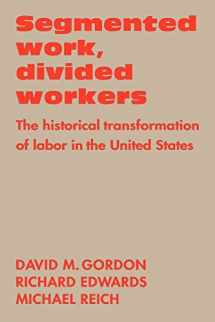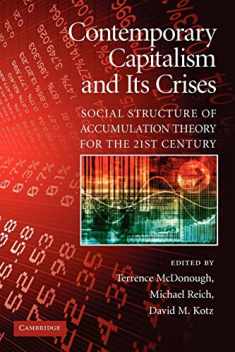
Segmented Work, Divided Workers: The historical transformation of labor in the United States
Book details
Summary
Description
Segmented Work, Divided Workers presents a restatement and expansion of the theory of labor segmentation by three of its founding scholars. The authors argue that divisions with the US working class are rooted in a segmentation of jobs since World War II. They explain the origins of job segmentation through a careful and systematic historical analysis of changes in the labor process and the structure of labor markets since the early 1800s. this analysis builds, in turn, upon hypotheses about successive stages in the history of capitalist development. Segmented Work, Divided Workers integrates this economics analysis with a careful historial appreciation of the complexity of working-class experience in the United States.


We would LOVE it if you could help us and other readers by reviewing the book
Book review




